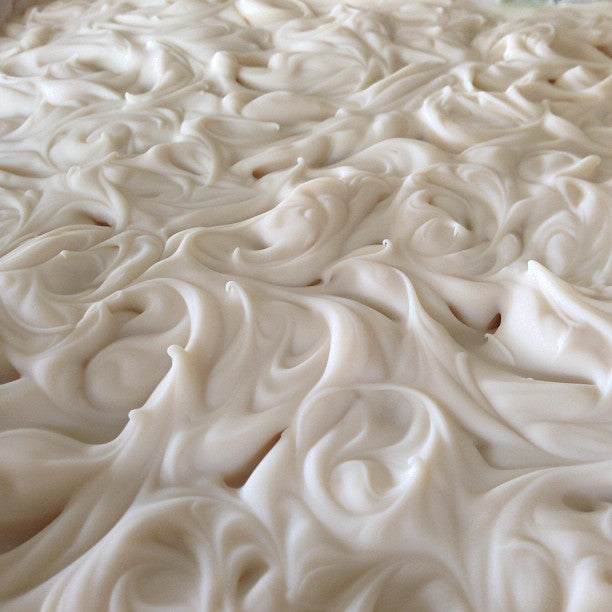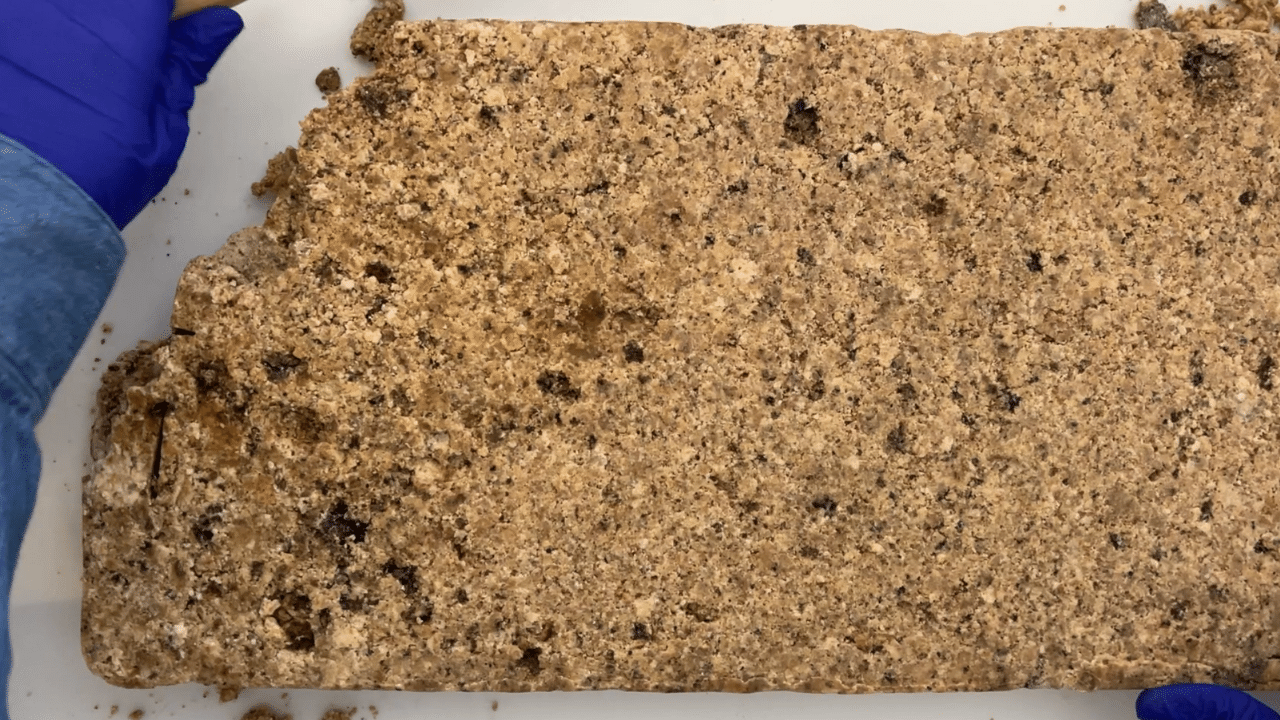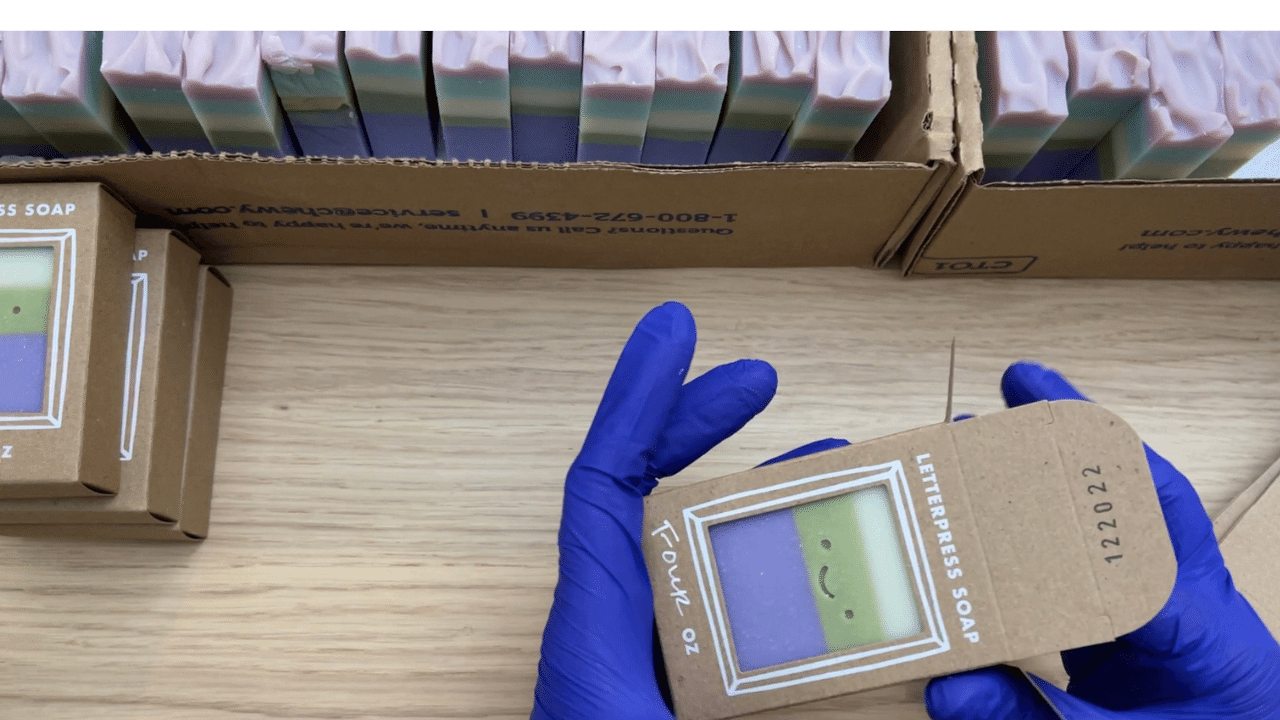Soap is an essential item; for health, hygiene, and hygge (hoo-gah). We use it every single day, and probably don’t think too much about it. Well, did you know that there is a huge difference in buying handmade soaps as opposed to store bought? Let me explain...
Not only are you supporting a small business (like me!) but you are giving your skin the gift of all natural ingredients. If you pick up a bar of soap from the store, do you recognize the names of all the ingredients on the list? Can you pronounce them? I would be willing to bet you can’t. While store bought soap is one of the easiest and cheapest ways to buy soap, there are many benefits to choosing handmade soap over what you'd find in the grocery store.
So, let’s get into the benefits of buying handmade soap and why you should try it today!
A Little History on Soapmaking
Soap has been around since the time of the Babylonians, and evidence of soap production has been found from as far back as 2800 BC. The first soaps were made from boiling fats with ashes to produce a lather to get clean.
Small businesses that offer handmade soaps take inspiration from the historical methods used to create soaps of the past. When you purchase a handmade soap, you’re actually keeping the ancient practice alive. At Nurtured by Nature Studio, we specialize in the art of making cold processed soaps.
What is Cold Processed Soap?
You’re probably wondering what is cold processed soap. To create cold processed soaps, you have to have a passion for soap making and a lot of patience. It takes considerable time to master this technique but it's always worth it. I began my soapmaking journey in 2008 and still continue to improve and optimize my methods, formulas, and techniques.
Authentic cold processed soap is created through a chemical process called saponification. This is the reaction that happens when you blend oils with lye. You can use all kinds of oils like coconut, lard, palm, olive, sunflower, etc. The list is pretty long and part of a good formulation includes the perfect ratio of oils. At Nurture by Nature Studio, we only use plant-based oils (no tallow or lard) and we don't use palm oil due to the lack of sustainability. That's basically it! Oils + lye + soap.
Now, to make it fancy and fragrant, we can add colorants, essential oils, clays, and so much more. You'll find soaps with salts, glitter, gem stones, pumice.... Soapmakers create custom scents by blending fragrances and/or essential oils which add to the charm of these soaps.
After the soap has saponified, it is removed from the mold and left out to cure for about 4 to 6 weeks. As you can see, this is a very lengthy process and it is all done to ensure you are getting a high quality soap that’s safe for your skin and enjoyable to use.
Benefits of Handmade Soap
There are many benefits to buying handmade soaps as opposed to commercially made soap.
Authentically Natural
Did you know that manufacturers can put “all-natural” on the label of any product? That term is not fully regulated so you really have to read the ingredients carefully. When it comes to soap, what you buy in the typical store isn't actually soap as defined by the FDA. That's why you'll see alternate names like "Beauty Bar" or "Bath Bars." When you purchase a handmade soap, you are getting what’s on the label. Below is how the FDA defines soap:
To meet the definition of soap in FDA’s regulations, a product has to meet three conditions:
- What it’s made of: To be regulated as “soap,” the product must be composed mainly of the “alkali salts of fatty acids,” that is, the material you get when you combine fats or oils with an alkali, such as lye.
- What ingredients cause its cleaning action: To be regulated as “soap,” those “alkali salts of fatty acids” must be the only material that results in the product’s cleaning action. If the product contains synthetic detergents, it’s a cosmetic, not a soap. You still can use the word “soap” on the label.
- How it's intended to be used: To be regulated as soap, it must be labeled and marketed only for use as soap. If it is intended for purposes such as moisturizing the skin, making the user smell nice, or deodorizing the user’s body, it’s a cosmetic. Or, if the product is intended to treat or prevent disease, such as by killing germs, or treating skin conditions, such as acne or eczema, it’s a drug. You still can use the word “soap” on the label.
You can read more here.
Even if a soap is labeled as natural at the store, it can still contain artificial fragrances and dyes which can be harmful to you. When you buy handmade soaps, you can rest easy knowing the maker has put the time and energy into selecting quality ingredients to make their soaps.
Better for Your Skin
These minimally processed and natural ingredients are going to benefit your skin much more than a unclear combination of detergents and chemicals. What you see on the label of handmade soap is what you get, and it will (almost) always be better for your skin. If you're not sure or have questions, feel free to message the maker or the store.
Better Fragrances
Handmade soaps are typically fragranced with essential oils and/or high quality fragrance oils. They can be any combination of the two or none at all. Even fragrance free soap has a lovely clean smell! As with the soapmaking oils, cold processed soapmaking can keep much of the essential oil intact so you will get a wonderful fragrance when using. Essential oils can also provide benefits such as aromatherapy, so you can suds up and enjoy a relaxing scent journey with your handmade soap.
Contains Natural Glycerin
During the saponification process, glycerin occurs naturally in handmade soaps. Since handmade soap processes aren’t as hard as a retail manufacturer, the glycerin remains in the finished soap. Glycerin is a humectant and helps to retain moisture in the skin. This gives handmade soap an extra hydrating effect so your skin won't feel tight or dried out. What’s not to like?
Supporting a Small Business
When you purchase handmade soaps, you’re often supporting small and local businesses. Soap makers have a passion for what they do, and put time and care into ensuring you’re getting a product you can trust. When made with good intentions, those good vibes get passed onto you.
Lots of Variety
If you buy soap at the store, let's admit it, they're pretty basic. Kinda boring. When you purchase handmade soaps, they are just that. Handmade! Every soap maker will have a different style and technique they use - no two batches, logs, slabs will be the same. Each is it's own little masterpiece!
You’ll never get bored of soaps when you buy handmade, because you can get something different every time. Some soap makers even offer custom options so you can get exactly what you want and it will be your own bespoke soap.
To sum it up, there are many benefits to buying handmade soaps. It’s better for your skin than detergent bars, and you know what you’re getting. Handmade soap is unique, and soap makers put a lot of time, energy and love into their products.
Cold processed soaps take over a month to make, and we ensure that you are getting exactly what is listed in the ingredients. Check out our shop today to get your hands on some all-natural handmade soaps!



